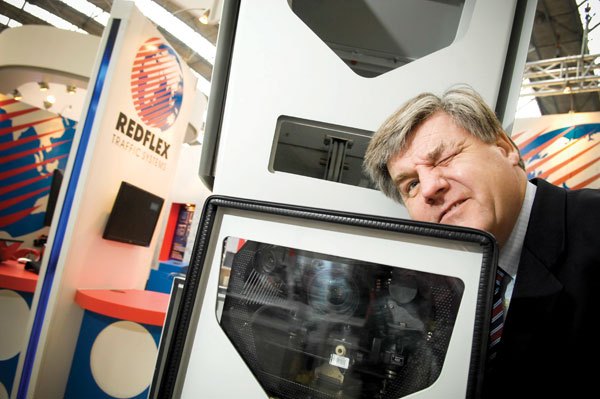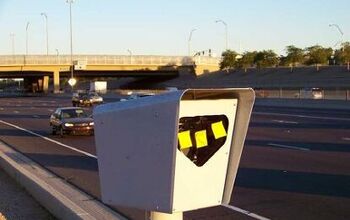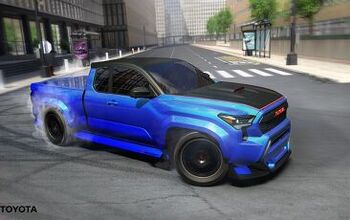Photo Ticket Firm Redflex Approaches Zero Profit
Despite collecting A$137 million in revenue from automated traffic ticketing, the Australian photo enforcement giant Redflex Traffic Systems yesterday announced its net profit before tax had fallen to a mere $442,000 for the first half of 2010. Redflex remains the number one player in the US market with US motorists providing 79 percent of the company’s ticket revenue. Redflex management, however, blamed recent losses primarily on “considerable public opposition” to photo radar and red light cameras in the US.
Earlier this year, public protests organized by the group CameraFraud.com helped convince Arizona Governor Jan Brewer (R) to shut down the statewide photo radar program run by Redflex. This cost the company $13.1 million in expenses and write downs. Similarly, as cities elsewhere in the country have decided to cancel their photo ticketing programs, Redflex has been forced to write down another $2.8 million in canceled contracts.
“ Citizen-led ballot initiatives at both municipal and state levels are potential threats,” the company warned.
Redflex explained to Australian investors that it would fight back against the public through a “managed media interface.” In Arizona, the company cited the creation of the Safer Arizona Roads Alliance as a front group to advance the firm’s corporate agenda in the guise of a non-profit “grassroots” organization. Redflex highlighted a similar effort it is undertaking in Illinois through a “group of advocates.”
Tough market competition accounted for additional losses. Arizona-based rival American Traffic Solutions (ATS) filed an ambitious lawsuit that cost Redflex $4.3 million in legal expenses, even though the Australian firm won the case. ATS also expanded its market share significantly in buying out the German firm Traffipax and the UK firm Lasercraft, bringing Redflex and ATS even in red light camera deployments. Overall, however, Redflex claimed a 47 percent market share with ATS taking 40 percent and Xerox-owned Affiliated Computer Services (ACS) dropping to a mere 9 percent.
ACS, the offshoot of Lockheed Martin IMS, used to hold the number one position in US automated ticketing machines. It has since shifted focus to ticketing in non-US markets. Redflex likewise has looked aggressively to install its products in friendlier, authoritarian regimes. Redflex recently signed three contracts in Saudi Arabia worth $34 million, added 36 new cameras in Qatar, delivered $3 million in cameras for Hong Kong and has secured approval for its products in Turkey.
International exchange hit the Redflex bottom line as an eighteen percent drop in the value of the US dollar against the Australian dollar cost the company $19 million. The company’s net debt now stands at $43 million. Redflex announced it would save money through new software that would “automate citation screening” and reduce the human effort involved in collecting on a ticket by seven percent.
[Courtesy: Thenewspaper.com]
More by The Newspaper
Latest Car Reviews
Read moreLatest Product Reviews
Read moreRecent Comments
- EBFlex Honda all day long. Why? It's a Honda.
- Lou_BC My ex had issues with the turbo CRV not warming up in the winter.I'd lean to the normally aspirated RAV 4. In some cases asking people to chose is like asking a Muslim and Christian to pick their favourite religion.
- 3-On-The-Tree Agree turbo diesels are probably a different setup lower compression heat etc. I never towed with my rig and it was all 40 miles round trip to work with dealer synthetic oil 5,000mi changes. Don’t know the cause but it soured my opinion on turbo’s plus the added potential expense.
- DesertNative More 'Look at me! Look at me!' from Elon Musk. It's time to recognize that there's nothing to see here, folks and that this is just about pumping up the stock price. When there's a real product on the ground and available, then there will be something to which we can pay attention. Until then, ignore him.
- Bkojote Here's something you're bound to notice during ownership that won't come up in most reviews or test drives-Honda's Cruise Control system is terrible. Complete trash. While it has the ability to regulate speed if there's a car in front of you, if you're coasting down a long hill with nobody in front of you the car will keep gaining speed forcing you to hit the brakes (and disable cruise). It won't even use the CVT to engine brake, something every other manufacturer does. Toyota's system will downshift and maintain the set speed. The calibration on the ACC system Honda uses is also awful and clearly had minimum engineering effort.Here's another- those grille shutters get stuck the minute temperature drops below freezing meaning your engine goes into reduced power mode until you turn it off. The Rav4 may have them but I have yet to see this problem.


































Comments
Join the conversation
The few good things Australia has contributed to the world are Uggs, Vegemite, XXXX(it's a Queensland thing), Holdens, and crazy whale guardians... The Bay Area is in LOVE with Redflex cameras. Oakland, Berkeley, San Francisco, and Fairfield are on their clients list. I HATE those god-forsaken things. It's a waste of energy as well as perfectly good Cisco VPN gear and Canon/Nikon DSLRs.
There was a Federal lawsuit in southern California in which Redflex won a motion to dismiss under anti-SLAPP and requested attorney fees over $100,000. It's currently being appealed. More at RedFlexAbuses.us